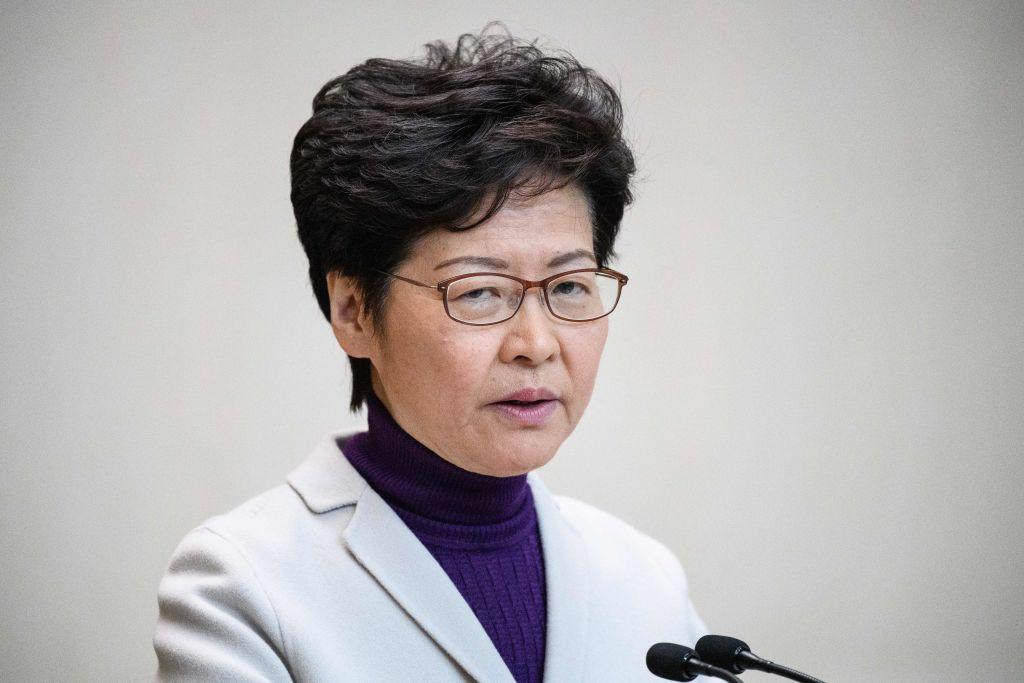Hong Kong leader Carrie Lam aligned herself with the Chinese regime in her weekly press conference on Dec. 3 over Beijing’s suspensions of U.S. military port calls to the city.
In retaliation against the U.S. government for enacting the Hong Kong Human Rights and Democracy Act, China’s foreign ministry spokesperson Hua Chunying announced Dec. 2 that Beijing had decided to “suspend reviewing requests of U.S. military vessels and aircraft to visit Hong Kong.”





